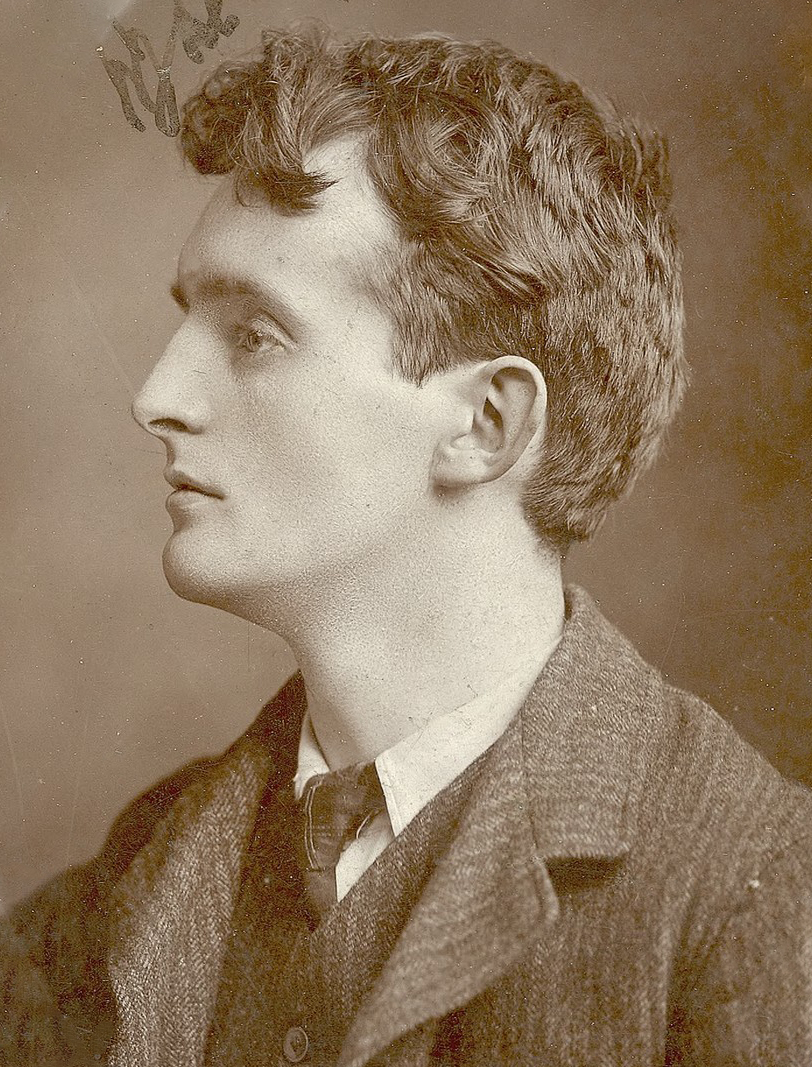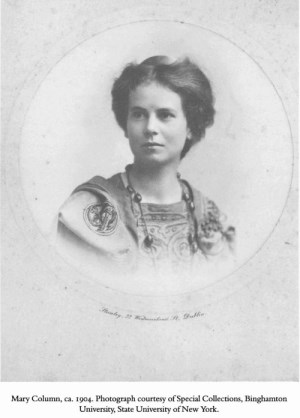Padraic Colum Gathering 2023
Padraic Colum Gathering 2023
This annual event honours Padraic Colum (1881-1972), who was one of Longford's great writers. It takes place on Saturday, 7 October.
It is open to all, free-of-charge and includes the following schedule of events:
Morning session in Granard Community Library
10:30am: Lecture: ‘Padraic Colum: a life in the theatre’ by Professor Christopher Morash MRIA, Seamus Heaney Professor of Irish Writing, Trinity College Dublin
11:45am: Lecture: ‘Padraic Colum: a new and old storyteller’ by Dr Patrick Ryan, independent scholar and storyteller
1-1:40pm: Lunch
Afternoon Session in Colmcille Community Centre, Aughnacliffe
2pm: Lecture on 'Columbkille and the Colum(b)s' by Benedict Reid, local historian
2:45pm: Reading of Padraic Colum’s poetry by poet Margaret Nohilly
3:15pm: Performance by children from St Colmcille’s NS, Aughnacliffe
History of Padraic Colum and the Gathering
Padraic Colum was a Longford-born writer who had a long and productive life as a poet, essayist, editor, children’s writer, folklorist, biographer and playwright. He was also a social activist, involved in the national movement for independence, and a colleague and friend of its leading figures.

Early Life
Padraic was born in what was then the workhouse on the 8 December 1881 to Patrick and Susan, nèe McCormack. Patrick, a native of the parish of Columcille, was then master of the workhouse. He is commemorated by a stone memorial at the site of the former workhouse on the Dublin Road.
His time in the workhouse made a great impression on young Colum and helped to inspire his work; he later recalled in particular some of the homeless men who stayed there overnight. Colum’s father lost his job in 1887 and went to the USA to prospect for gold, while Susan and the children moved to her parents’ home in Cavan. There, Padraic got to know his uncle Micky Burns, a buyer of fowl, who became another important influence on him. Colum developed a great understanding of country folk and an appreciation of traditional songs and stories.
On his return from America, Colum’s father moved the family to Dublin where he secured a job as a railway clerk. Padraic took a similar job when he left school, but he was also developing a talent for writing. He had pieces published in the Irish Independent and the United Irishman and these brought him praise. In 1904, Colum received a scholarship for five years from an American named Thomas Hughes Kelly and that enabled him to concentrate on writing.
Early Career
The literary world that Colum was part of at that time was exciting and ground-breaking, and he mixed with greats such as W.B. Yeats and George Russell, whose pen-name was ‘Æ’ Through his plays he became involved with the founders of the National Theatre Society, William Butler Yeats, Lady Augusta Gregory and Edward Martyn. He was the first to dramatize the realities of rural life in Ireland, and in doing so he drew from life as he had experienced it in Longford.
Through his plays he became involved with the founders of the National Theatre Society, William Butler Yeats, Lady Augusta Gregory and Edward Martyn. He was the first to dramatize the realities of rural life in Ireland, and in doing so he drew from life as he had experienced it in Longford. He played a major part in the founding of The Abbey Theatre, and was one of the original signatories of the Abbey charter and the writer of several of its early productions. In 1903, leading nationalist, poet, and painter, AE George Russell, predicted: Colum will be our principal literary figure in ten years.
Activism
Colum was friendly with a number of the revolutionary leaders of the time, in particular Arthur Griffith. It was partly through Griffith he got involved in nationalist politics as a member of the Irish Volunteers. He took part in the Howth gun-running incident in 1914 when the volunteers landed arms that had been bought in Germany, although he played down is part in later retellings.
Marriage to Mary Gunning Maguire

In 1912 Colum married Sligo-born Mary (known as Mollie) Maguire who taught in St Ita’s, Patrick Pearse’s school for girls. She was a critic and author, and co-founder of The Irish Review. James Joyce was a lifelong friend and he and his family often turned to Padraic and Mollie for all kinds of support – not least when they lived in Paris.
Mary was a social and political activist herself, and was a founding member of Cumann na mBan. Both Mary and Padraic were suffragists.
America and Beyond
In 1914 the couple travelled to America for what was to be visit of a few months but lasted eight years. During his time in USA, Colum took up children’s writing and published a number of collections of stories for children, beginning with The King of Ireland’s Son. Padraic received several awards and a contract for children’s literature and folktales with Macmillan Publishers, and this brought him financial security.
In the period from 1922 to 1933, Padraic and Mary travelled widely, residing in North America and Europe. It was during those years that they lived in Hawaii, where Colum was employed by the legislature to collect folklore, some of which he published. Padraic and Mary finally settled in New York and both lectured at Columbia University. They also regularly returned to visit Ireland, and are fondly remembered by their relatives.
After his wife’s death in 1957, Colum continued lecturing, writing, and editing volumes of poetry until the late 1960s. In 1963 he became a member of the American Academy of Arts and Letters. He died in 1972 and is buried in Sutton, Co. Dublin.
Padraic Colum Gathering
The Padraic Colum Gathering is a new annual festival, bringing together admirers, scholars and members of the Colum family from Ireland, Britain and Australia to celebrate the life and work of the county’s famous son.
The first gathering, called the Padraic Colum Cruinniú (the Irish word for gathering), took place on the weekend of 8-9 September 2017. People heard readings of his stories and poems, including the popular An Old Woman of the Roads, which was dramatised by children from Aughnacliffe, the Colum family ancestral place. In talks and presentations, the Gathering learned about his great gifts as a storyteller, not least his stories for children. They heard about his friendship with leading figures in the independence movement: Patrick Pearse, Tomás MacDonagh, and Joseph Plunkett.